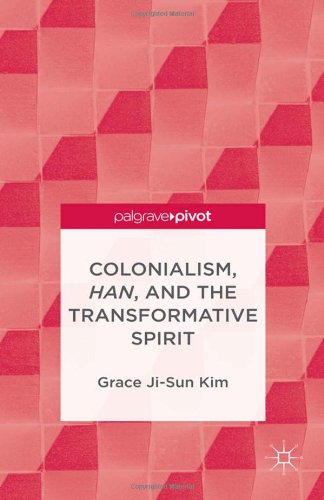A Conversation with Grace Ji-Sun Kim, Part II
Editor’s Note: This week, we discuss Grace Ji-Sun Kim’s 2013 book Colonialism, Han, and the Transformative Spirit. Here, Dr. Kim answers a few questions arising from my reading of her book.
You note the work that has been done to increase the desire for cheap products. Talk about how we deal with this theologically and ecclesiologically. There are many, many people employed in these industries. How do we shift into a more life-affirming model of economics?
Society teaches us that we need material goods to survive. It teaches us that we need the latest IPhone, the latest fashion and the latest model of car so that we can be happy and fulfilled. Through strategic marketing and commercialization, we are conditioned to shop and buy more goods to fulfill the void that we sometimes feel. Our desire for more good at a cheap price is causing what we should clearly label as ‘modern slavery’.
Factories are moving outside of America into poorer nations. People who are desperate for work are finding themselves working in ‘slave’ like conditions in factories that are surrounded by high barbed-wired fences. These factory workers are caged in like animals and are forced to get up early in the morning from their tiny dormitory rooms and work all day long. These workers are underfed and under nourished and continue tow work in unsafe, undesirable working conditions. We are aware of the unsafe working conditions in Bangladesh that took the lives of hundreds of people this past summer.
To many of us living in North America, it feels like an impossible situation to fix. As the demand is there and the global structures are in place that keep this infrastructure in place.
But there are ways to overcome this ‘modern day slavery’. First, we can stop consuming so much. We don’t need the latest technology or the latest fashion as our closets and homes are already full. Once our drive for consumerism drops, other things may start to fall into place. We also need to force the factory owners to pay better wages and provide safe working conditions. As a result, we need to start paying fare prices for our goods. In addition, we need to start replenishing the earth’s resources so that we do not create permanent damage to the earth. These are steps that all of us can start to take to create more life-affirming models of economics.
![better[1]](http://www.ecclesio.com/wp-content/uploads/2013/09/better13.jpg) Sallie McFague suggests that we view the earth as God’s body. How does this relate, in your understanding, in the view of the church as Christ’s Body?
Sallie McFague suggests that we view the earth as God’s body. How does this relate, in your understanding, in the view of the church as Christ’s Body?
We are created by God and it is very difficult to grasp the entirety of who God is. Sallie McFague suggests that we view the earth as God’s body. This view helps us understand how we are all connected to each other and to God. If we view the earth as God’s body, we will also be more conscious of how we treat the earth. Rather than damaging it, we will learn to love it, nurture it and shelter it from harm.
This relates significantly to my understanding of the church as the body of Christ. Christ is the head and we are the body. As the body of Christ, the church needs to bear witness to Christ in this world. This occurs in many ways and avenues. One way is that, as Christians, we are called to be the salt and the light of the world. As salt and light of the world, we called to be agents of change in our community and world. As salt seasons and changes food and as light illuminates darkness, we as the body of Christ are called to transform the world.
As the body of Christ, we are all important and valued. Every single part of the body of Christ is vital and we cannot ignore the different parts of the body. This means that every member of the body has gifts to share and we need to encourage and foster all members to share their various gifts and talents. Everyone’s special gifts need to be used to build each other up, nurture the community and participate in the reign of God here on earth.
The church is diverse and diversity is its strength. In this diversity, we need to welcome those who may be different from us to the table for fellowship, sharing, and growth. People from various cultural backgrounds, ethnicity and class need to join hands and rejoice at the Lord’s Table and support one another as we witness for peace and justice in God’s world.


![41HZczsMFGL[1]](http://www.ecclesio.com/wp-content/uploads/2013/09/41HZczsMFGL14-194x300.jpg)
Pingback: A Conversation with Grace Ji-Sun Kim, Part II | Grace Ji-Sun Kim